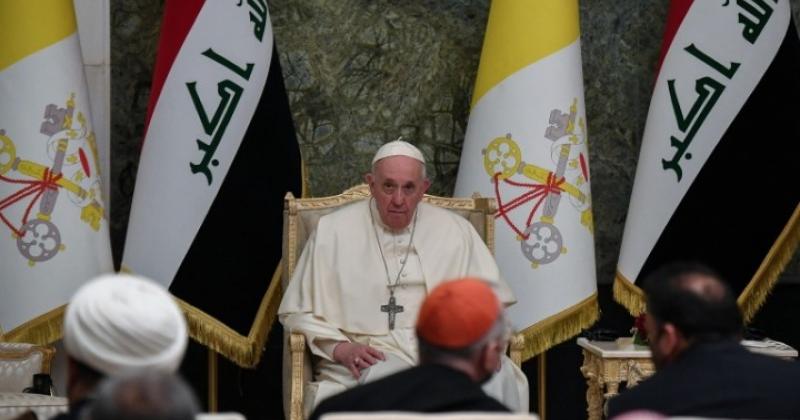The historic visit of His holiness Pope Francis' March 5-8 to Iraq is still the focus of columnists, analysts, and peace-lovers. This visit is still making resounding reverberations with efforts trying to analyze every bit and piece of the visit and to shed light on every word uttered by His Holiness the Pope.
No matter what is being written about this visit, it falls short of analyzing its muti-facetted results. Though analysts describe the visit with terms such as peace, common living, cordial relations and the like, this visit can also be termed as being ''ecumenical''.
Pope Francis went to Iraq with the aim of giving all kinds of support for the dwindling Christian Iraqi community, "with its entire denominations", encouraging the Christians to stay in the country and those who emigrated to return to their country, the country of their ancestors. The visit targeted "all Christian Iraqis" with assurances that the Pontiff and the Holy See would never leave them out in the cold.
When Pope Francis met with senior Iraqi officials, he addressed the desperate situation of all Christian Iraqis. When the Pope, a strong advocate of inter-faith dialogue, met with Shiite leader Ayatollah Ali Sistani, both leaders knitted the fabric for promoting peace and unity.
Therefore, the visit has a facet of being ecumenical, in the sense that the Pope cared for all the Christians Iraqis regardless of their denominations. In all key visits undertaken by the Pope, he was the defender of Christian causes and acted for all the Christians worldwide as well as served the cause of peace, tranquility and common living.
In February 4, 2019 His Holiness Pope Francis and Al-Azhar’s Sheikh Ahmed Al-Tayeb signed the Document on Human Fraternity for World Peace and Living Together in Abu Dhabi. The declaration of fraternity pledges the religious leaders to work together in perpetuity and to reject violence and radicalism. Following the signing of the document, Pope Francis said, “Fraternity is established here at the roots of our common humanity, as a vocation contained in God’s plan of creation.”
While Sheikh Al-Tayeb said, "The document is historic, and it calls for policymakers to stop bloodshed and conflict. Muslims must protect their Christian brothers. I will work with my brother and friend Pope Francis to protect all communities.”
Thus, this document signed by Pope Francis makes an all-out outline of Christians relations with Muslims. Furthermore, with Pope Francis exerting efforts in every nook and cranny in the world to serve the Christian causes, it is time to admit and recognize the ecumenical and universal role played the Holy See in representing the Christian causes.
Consequently, it is overdue to address Christian unity. In an earlier statement His Holiness Pope Francis said, “The Lord asks us for unity; our world, torn apart by all too many divisions that affect the most vulnerable, begs for unity.”
In February 2016, Pope Francis and Patriarch Kirill, patriarch of the Russian Orthodox Church issued a Joint Declaration known as the Havana Declaration. It included 30 points and expressed hope that the meeting might contribute to the re-establishment of Christian unity between the two Churches. Furthermore, in 2014, Ecumenical Patriarch Bartholomew and His Holiness Pope Francis signed a joint declaration affirming their commitment to seek unity between their respective ecclesial bodies.
The ecumenical role played by His Holiness Pope Francis is worthy appreciation, respect, and support. It is hopeful that Christian unity is in the near future.
-
